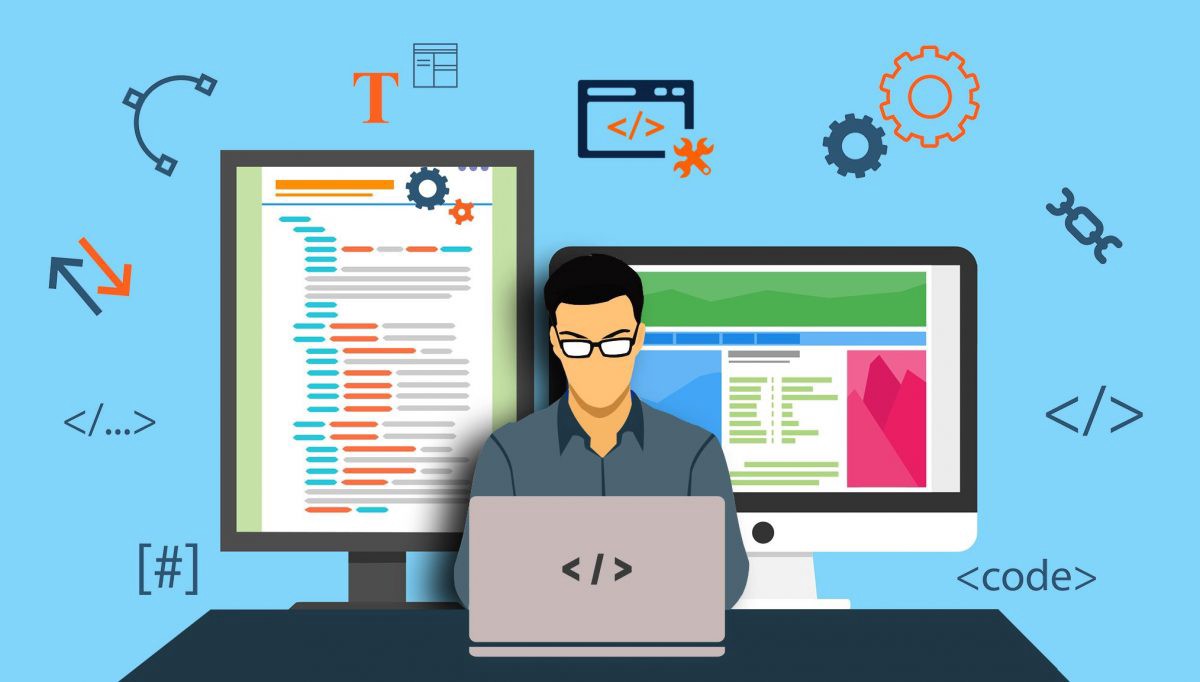A backend developer is one of the fundamental areas of employment for professional programmers focused on working with clean code. No plugins, no frameworks – just coding, information and databases. The speciality is extremely interesting, especially for people with analytical thinking – for mathematicians and conservatives from the world of software development it is an ideal choice.
Oftentimes, backend specialists do their own database management – sometimes this can be done by individual employees, DevOps. The main developer tools are programming languages that are focused strictly on the server side of the project. The most popular programming languages for backend development are the following:
- PHP, Python, Java, C#, Node JS;
- For developers on Node JS, it is worth learning Express and MongoDB (database for obtaining and storing information);
- Useful additional tools are Laravel, Symphony, Django, Flask, Ruby on Rails, Spring, and Express;
- To store information, use MySQL, PostgreSQL, SQLite.
More information about backend development services
Profession Features
Today, the work of backend programmers largely depends on the chosen framework. Due to their development, there are many ways to solve typical problems on the stream, paying special attention to solving unique problems. A modern developer in many ways must behave like an engineer, because many programming tasks have to be solved by gluing code from several ready-made parts.
The main tasks of a backend programmer include:
- Domain development – subject area of project implementation;
- Development of the platform and the main functionality, business logic and tasks closest to the hardware of the project (sometimes you have to write in machine codes, which requires experience and relevant skills);
- Working with user and project data security;
- Configuring servers and programs to monitor server status;
- Creation and configuration of project databases and subject area of interactions between diverse databases;
- Setting up integration and data update processes on the server side.
Personal merits
Working in the backend minimizes communication with clients, so a specialist can be 100% introverted – this is why so many creative young people go into backend development. Among other personal qualities that are taken into account in employment, the following should be noted – they must be developed in the same way as knowledge of databases:
- Responsibility. The backend programmer is responsible for both user data and platform data. Relational tables should work quickly, the site should work without delays, and communication with the server part should be instantaneous. Each mistake can be very costly;
- Attentiveness. The backend programmer must have a thorough knowledge of the project database and provide access to the necessary information on the first request;
- Employability. The work must be carried out in a short time – all errors are eliminated as quickly as possible or will lead to irreversible consequences;
- Logical thinking and analytical mindset. A backend programmer does a lot of side work as he goes along – he needs to quickly switch between different languages or frameworks, so being able to concentrate and think several moves ahead is a key quality of a good backend programmer;
- Ability to work in a team. For a backend programmer, it is important to be able to delegate tasks – a platform can take up gigabytes of clean code, and several specialists often work on its functionality. Skillful task management guarantees the maximum workability of the project, so the effectiveness of teamwork is extremely important.
Study
Training for a backend programmer has several nuances that you need to pay priority attention to:
- Back-end development is more complex than front-end development, so regular online courses are not suitable for learning. To master diverse programming languages, it is necessary to thoroughly study the methods of using each of them. The ideal technical base for training a backend specialist is mathematics and physics. An undoubted advantage will be a specialized IT education at a university;
- Online courses on the Internet. To comprehend all aspects and nuances of the specialty, you need to pass a few online courses minimum. In addition, many of the tasks of a backend programmer are typical, which makes it necessary to have skills in working with Git and other repositories that contain information on techniques for working with different project backend data;
- Acquiring the stack of necessary skills will require active participation in open-source projects;
- Having a pet project is a key aspect of the successful development of a backend specialist. You can adjust your project to the current conditions of the main work task and change the methods of applying your own skills.
Verdict
Backend programming is a profession at the very beginning of programming. Having changed the key development methods, at the base of offline and online platforms, the algorithm is still the same. The developer should be as focused as possible on the task at hand – due to the timely integration of the most relevant methods and approaches to solving programming problems, the backend of the project will work as efficiently as possible. The profession is extremely difficult, so you have to work a lot. However, all the distinctive aspects of programming are most clearly represented in the backend, so if you chose this profession a long time ago and it meets all your inner urges, work on the backend. For more facts follow the link .










